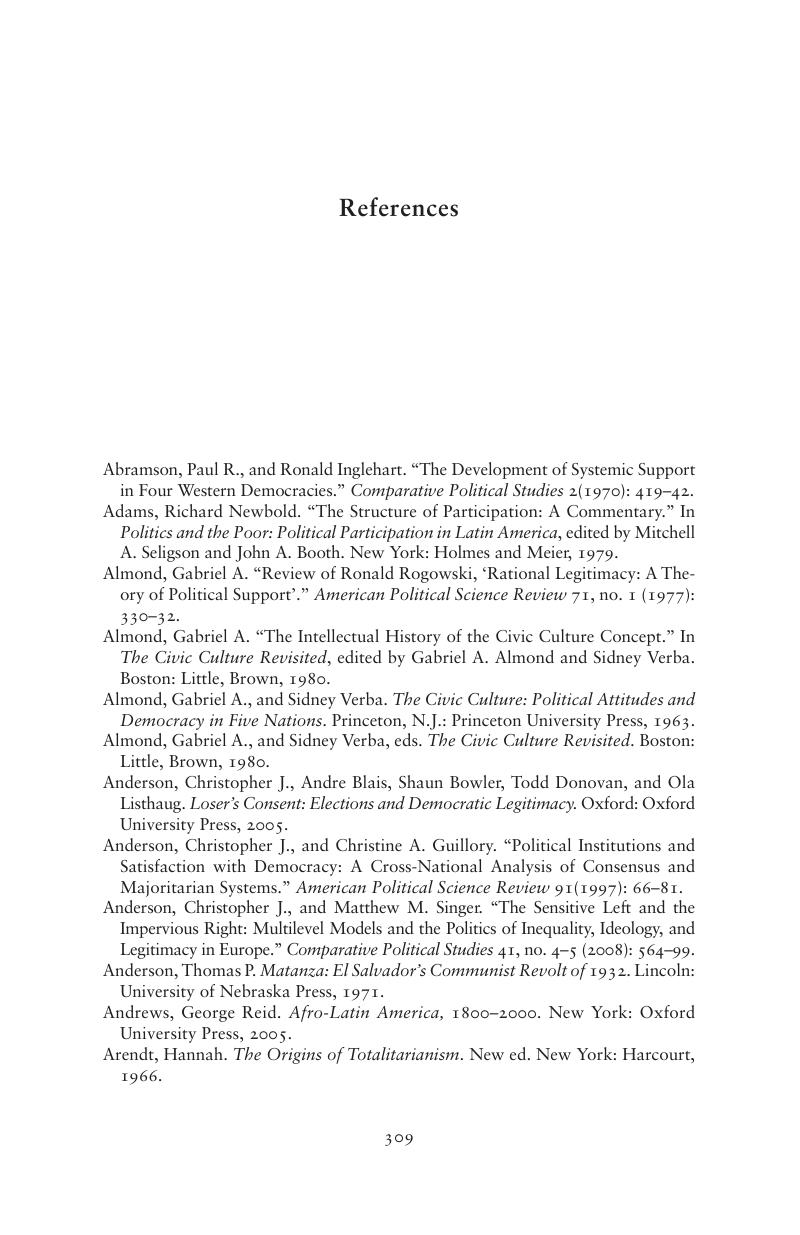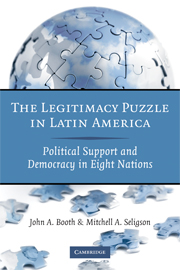Book contents
- Frontmatter
- Contents
- List of Figures
- List of Tables
- Preface
- 1 The Legitimacy Puzzles
- 2 The Structure of Legitimacy
- 3 Countries in the Study
- 4 The Sources of Political Legitimacy
- 5 Legitimacy and Political Participation
- 6 Legitimacy and Negative Political Capital
- 7 Legitimacy and Democratic Values
- 8 The Sky Is Not Falling: The Puzzle Solved
- Appendix A Supporting Data and Analyses for Chapters 1–5
- Appendix B Variables Used in the Analyses
- Appendix C System-level Performance Measures
- Appendix D Nonsampling Errors, Sampling Errors, and Design Effects for the Eight-Nation Survey
- Appendix E Method of Constructing the Legitimacy Factor Scores
- References
- About the Authors
- Index
- References
References
Published online by Cambridge University Press: 05 June 2012
- Frontmatter
- Contents
- List of Figures
- List of Tables
- Preface
- 1 The Legitimacy Puzzles
- 2 The Structure of Legitimacy
- 3 Countries in the Study
- 4 The Sources of Political Legitimacy
- 5 Legitimacy and Political Participation
- 6 Legitimacy and Negative Political Capital
- 7 Legitimacy and Democratic Values
- 8 The Sky Is Not Falling: The Puzzle Solved
- Appendix A Supporting Data and Analyses for Chapters 1–5
- Appendix B Variables Used in the Analyses
- Appendix C System-level Performance Measures
- Appendix D Nonsampling Errors, Sampling Errors, and Design Effects for the Eight-Nation Survey
- Appendix E Method of Constructing the Legitimacy Factor Scores
- References
- About the Authors
- Index
- References
Summary

- Type
- Chapter
- Information
- The Legitimacy Puzzle in Latin AmericaPolitical Support and Democracy in Eight Nations, pp. 309 - 330Publisher: Cambridge University PressPrint publication year: 2009



